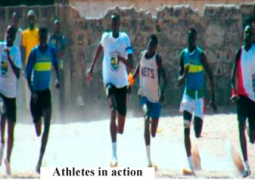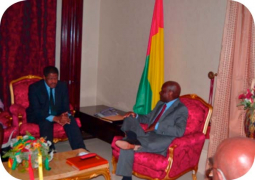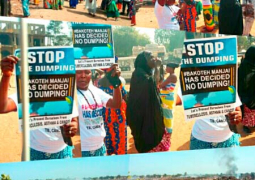A twelve-month shoreline water quality survey has shown that Gambian water is relatively very clean and encouraging.
“This means that there are opportunities and chances for Gambia as a country to export oyster and clams to Europe and America to the international market for foreign exchange, thus boost the socio-economic status of the country if the trend continues.”
According to Ousman Drammeh, Banafaa project manager, “the result for the first year sanitary shoreline water survey has shown that the water is relatively very clean and very encouraging”.
If the trends continue for the 3 years to come the country may be in the position to sell raw oyster for consumptions in restaurants, supermarkets and tourist markets, and even export to Europe and America for foreign exchange at international markets.
Mr Drammeh made these remarks recently at a day stakeholder meeting held at Fisheries conference hall in Banjul.
“Shoreline water survey is the first step to conducting water test to ascertain that the waters are clean and safe to enable the country prove with scientific data and information that shows that there is no health risk associated with eating raw oysters and clams,” he noted.
Sanitary shoreline water survey identifies potential areas of popular waters, after the shoreline survey, which is being conducted by the Department of Water Resources, he said, adding that it can be done annually followed by a regular water quality studies.
Banafaa has been funding the conduct of water quality survey for twelve months and would continue to fund the study for a period of 3 years.
So that there can be time series of data and information on the water quality within the Tanbi National Park and the periphery communities as far as Kartong.
For his part, Professor Michael A. Rice of the University of Rhode Island, who has been the leading and guiding light on the water quality survey, has presented a document on shellfish growing area, monitoring programme standard operating procedures.
According to his presentation there were emphasis laid on the classification of growing areas, routine bacteriological monitoring programme, phytoplankton monitoring programme, annual review of bacteriological data among others that pave the way forward for effective planning and implementation of programmes and activities connected to the sanitary and hygienic of sea food.
According to him, in order to maintain certification of these waters for the harvest of shellfish for direct human consumption, the office of water resources conduct routine bacteriological monitoring and pollution source inventories of the states shellfish growing waters.
The National Shellfish Sanitation Programme requires that the State maintains data and files that will provide evidence and demonstrate the effective administrative management of the shellfish sanitary control programme.
He added that States shall keep records in a central file, which will facilitate the Food and Drug Administrative (FDA) review of their shellfish sanitation programmes and shall assist the FDA in making such reviews.
“When different State agencies are involved in the sanitary control of the shellfish industry, there should be MOU as to each agency’s responsibilities is incorporated in the agreement document,” said Professor Rice.
Dr Banja, project coordinator of Water and Sanitation Hygienic (WASH), a component of the Banafaa project, stated that sanitary shoreline and bacteriological water quality testing is very important, especially when dealing with molluscan shellfish.
These are filter-feeder organisms, he said, adding: “The quality of water in which these oysters live is very important; it will go a long way in determining the oyster processing and landing sites to be supported by the WASH component of the Banafaa project but most importantly it will go a long way in starting and initiating a national shellfish sanitation programme in The Gambia.
“This is just the initial stage where all the stakeholders will be consulted to come up with formation of the initializing a national shellfish sanitation programme with support from the Banafaa project of the Government of The Gambia.”
Read Other Articles In Article (Archive)




